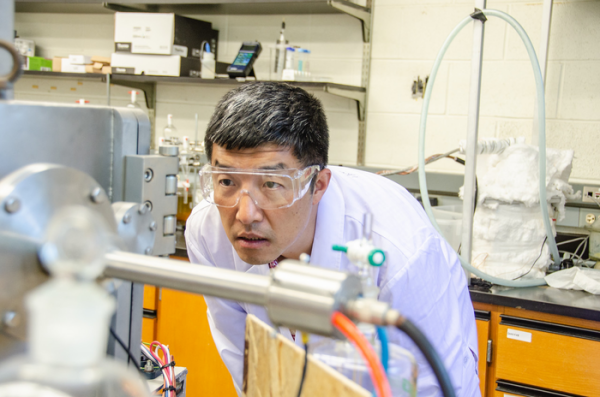More than 50 years after scientists first coined the term "hydrogen economy," the movement to make hydrogen a predominant global fuel source could be gaining traction thanks to research led by one West Virginia University engineer.
Xingbo Liu, professor in the Department of Mechanical and Aerospace Engineering, will help develop new, cutting-edge coatings for the blades of turbines used in large-scale power generation. These protective layers will be able to withstand the extreme heat and corrosion of hydrogen combustion but work with the principles and technologies of existing natural gas turbines, primarily in power plants.
The research is promising enough to have early investment from business, and if successful, could play a critical role in linking the energy industry West Virginia has to the energy industry it wants, enabling an energy revolution that's more like an evolution, where clean power builds on existing resources – in this case, the state's power generating plants and natural gas reserves.
Read more at: West Virginia University
Xingbo Liu, Statler chair of engineering, conducts research at his WVU lab. The U.S. Department of Energy has awarded $2 million to support Liu’s development of high-entropy coatings capable of protecting the blades of gas turbines in power plants from the intense heat and corrosion of hydrogen combustion. Hydrogen combustion produces no greenhouse gases and technology like Liu’s may advance the emergence of a new energy economy in which green hydrogen is a predominant fuel source. (Photo Credit: WVU Photo/Paige Nesbit)


